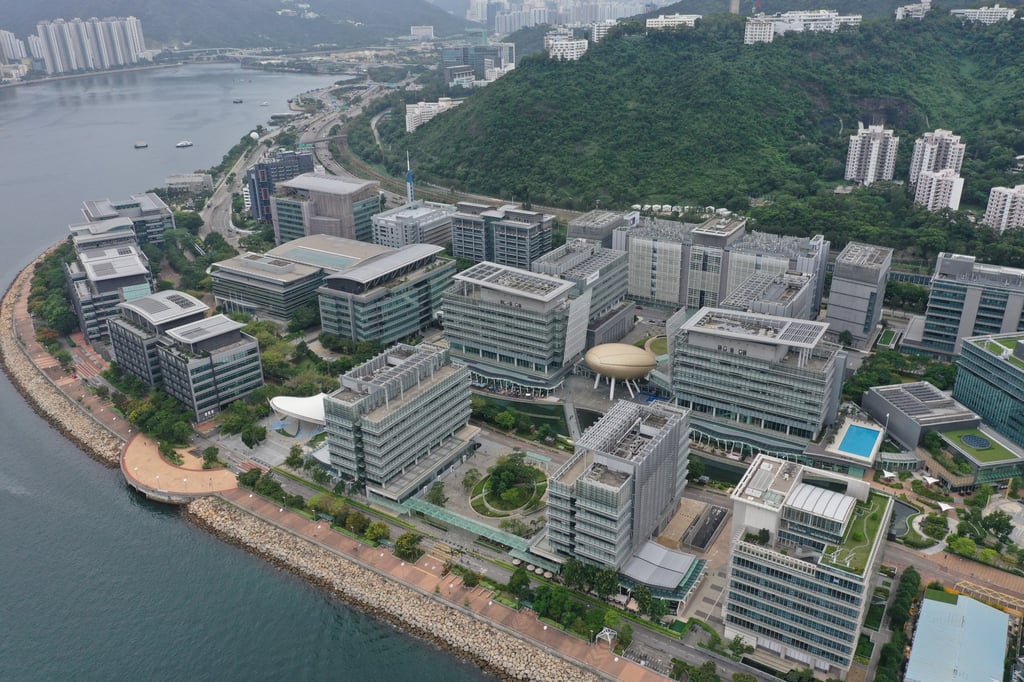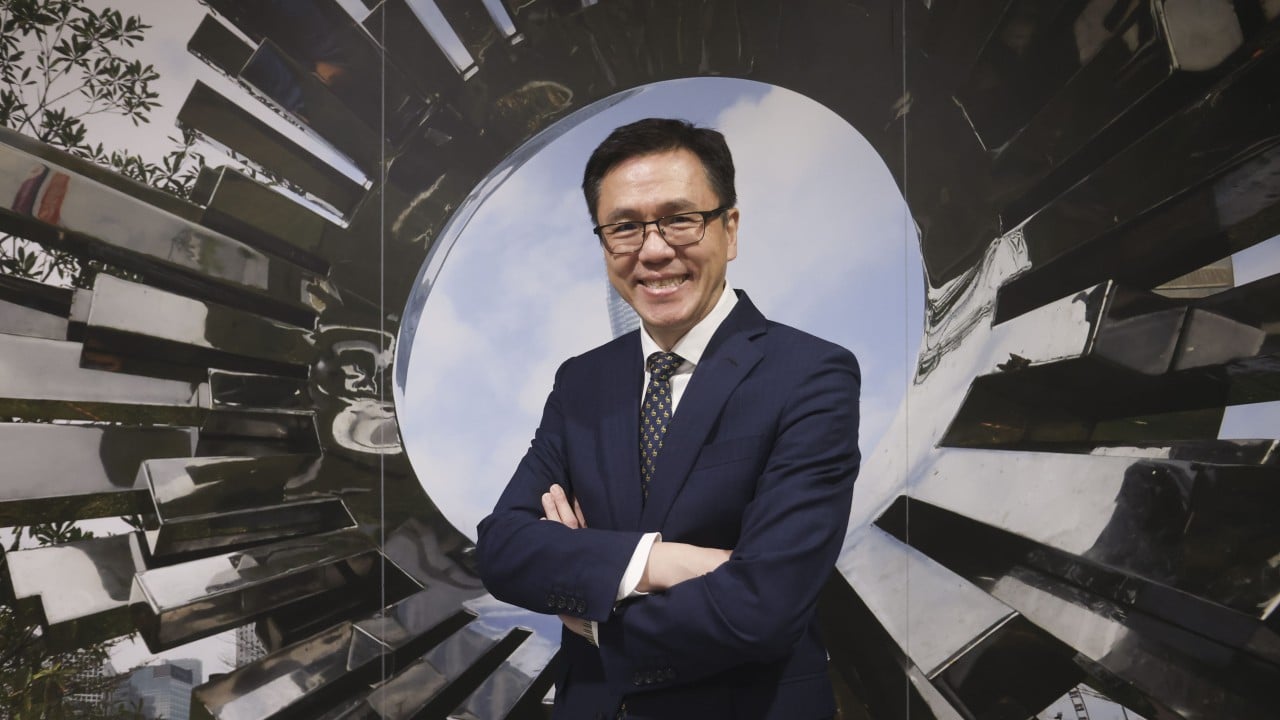The latest moves by Washington to limit Hong Kong’s access to American health data and biotech equipment exports have had a “relatively limited” impact on the city’s goal of becoming a regional innovation hub, the IT minister has said, as he outlined his strategy to diversify geopolitical risks.
Secretary for Innovation, Technology and Industry Sun Dong said in an exclusive interview with the Post that authorities were seeking to expand the city’s access to global pools of data by increasing collaborations with countries in Europe, the Asean bloc and others under Beijing’s Belt and Road Initiative.
A scheme allowing for the sharing of personal data over the border would also be expanded to cover all sectors in the Greater Bay Area this year, the minister revealed.
When asked about recent moves by the United States government to block Chinese access to the American life sciences market, Sun was adamant they would not deter Hong Kong from becoming an innovation and technology (I&T) hub as called for in Beijing’s latest five-year development plan.
“[The] impact of any unilateral policies implemented by individual countries is relatively limited,” he said.
“It will, under no circumstances, waver our determination to develop Hong Kong into an international I&T centre. Companies from mainland [China] and overseas have been casting their vote of confidence to Hong Kong’s I&T prospect by establishing or expanding their bases in Hong Kong.
“The government has also been encouraging enterprises to adopt a diversified marketing strategy to attract investment from various places around the world, so as to reduce the dependence on a single market. We are sparing no efforts in driving the sustainable development of the Hong Kong IT ecosystem.”
The US House Select Committee on Strategic Competition between the US and the Chinese Communist Party introduced the Biosecure Act in January. If enacted, it would prohibit federal loans and grants to any American companies that use biotech equipment or services from major Chinese biotech companies, including genomics service provider BGI Group and biopharmaceutical firm Wuxi AppTec.
Analysts have said it would significantly affect US companies’ interest in dealing with biotech companies from the mainland and Hong Kong.
The introduction of the act was followed a month later by US President Joe Biden’s move to restrict Chinese access to sensitive American “bulk data”.
The order signed by Biden covers the sharing of genomic, biometric, personal health, geolocation, financial and government-related data and other personal information that could be used by certain countries to threaten American national security. As part of China, Hong Kong is specified as a place of concern.
Faced with these restrictions, Hong Kong authorities were trying to minimise geopolitical risks, the minister said. He noted the Microelectronics Research and Development Institute in Yuen Long’s InnoPark was focusing on power-related semiconductors, which were “relatively less sensitive” than other chip products.
“So we expect that developers and businesses in this area would easily get some international investment, as well as project equipment internationally,” he said. “Many people believe Hong Kong can make breakthroughs in this very unique direction.”
Authorities last month announced that semiconductor producer MassPhoton would invest HK$200 million (US$25.6 million) to establish its first global research and development (R&D) centre at the Science Park, with a plan to build the city’s first semiconductor production line with rare next-generation gallium nitride in the InnoPark. It is expected to produce 10,000 units of third-generation semiconductors by 2027.
Sun said Hong Kong was still one of the world’s leading fundraising hubs for biotech development, as it enjoyed strong support from Beijing while being closely connected with the rest of the world under the “one country, two systems” governing principle.
The city is Asia’s largest and the world’s second-largest fundraising hub for the biotechnology sector, official statistics show. As of 2023, 126 healthcare and biotech companies had listed in Hong Kong, raising a combined HK$277 billion through IPOs.
As of February, there were 63 pre-revenue or pre-profit biotech companies listed under an IPO regime that took effect in 2018, raising about HK$120 billion.
Sun said authorities were now exploring further cooperation with European and Asean bloc countries, as well as those along the Belt and Road Initiative, Beijing’s plan to link dozens of economies in Asia, Europe and Africa into a China-centred trade network, to expand the city’s pool of data used in research and innovation.
The minister also revealed that the government was planning to expand a cross-border data transfer pilot scheme this year to cover all sectors in the bay area, a national effort to integrate Hong Kong, Macau and nine southern mainland cities into an economic powerhouse.
Introduced in December last year, the transfer scheme allows for personal data held by companies in banking, credit reference and healthcare to be shared across the border. The transfer is done through a standard contract outlining the responsibilities and obligations of all parties.
Since the scheme’s introduction, about 100 submissions of expression of interest have been received, a spokeswoman for the Innovation, Technology and Industry Bureau said.

As of the end of July, the Digital Policy Office had received about 40 submissions of contracts.
“After six months of pilot arrangement, the result is pretty good,” Sun said. “So, we are going to expand to cover all … [sectors] in the Greater Bay Area very soon. This would facilitate enterprises and research institutes in Hong Kong to access and transfer personal information from the [bay area].”
The city is also pressing ahead with the development of the Hong Kong-Shenzhen Innovation and Technology Park near the border, which Sun said would serve as a bridgehead for IT cooperation between the two cities.
He added that the InnoHK initiative at the Science Park has already created 29 research centres involving more than 30 top universities and 3,000 academics from the fields of life sciences, health tech, AI and robotics. The clusters would soon be expanded to cover advanced manufacturing, sustainable development, new energy and new materials, he said.
Later this year, a HK$10 billion New Industrialisation Acceleration Scheme will be launched to provide funding on a matching basis for 50 to 100 companies engaged in strategic industries to set up new smart production facilities.
The minister said that Hong Kong could still seek collaboration with the mainland and overseas markets, while enjoying Beijing’s support and the advantages of being an internationalised city.
“I think that this is a very good way for us to overcome any problems ahead because of the geopolitical issues,” Sun said.


